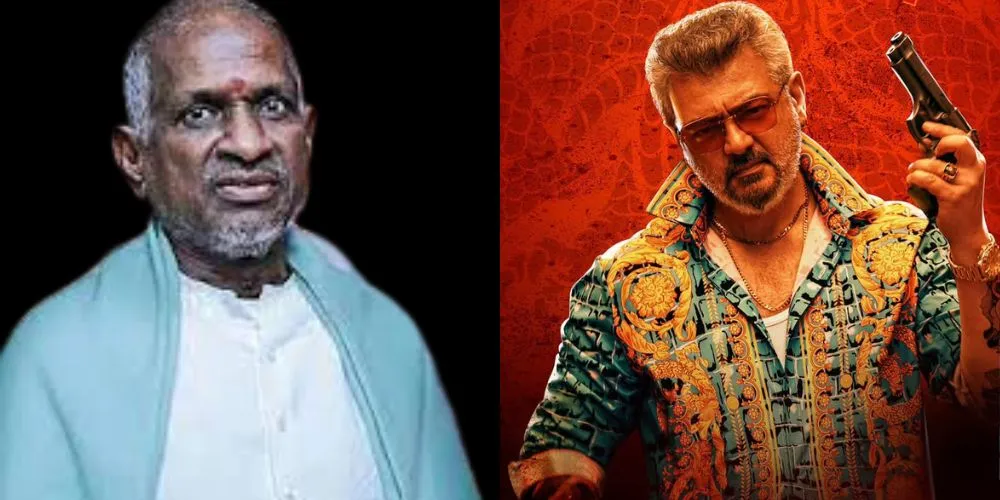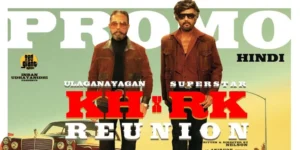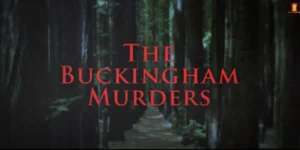
Ajith Kumar starrer latest box office sensation Good Bad Ugly has landed in the middle of a brewing legal controversy. Renowned music composer Ilaiyaraaja has sent a legal notice to the producers of the film, alleging unauthorised usage and alteration of his iconic songs. The film, directed by Adhik Ravichandran and co-starring Trisha Krishnan opposite Ajith Kumar, has already emerged as 2025’s highest-grossing Tamil film, collecting a staggering ₹175 crore globally. However, this latest controversy threatens to shadow its success.
Ilaiyaraaja Demands ₹5 Crore and an Apology
The legendary composer has demanded ₹5 crore in damages, citing the unauthorised use of three of his classic compositions ‘Otha Rubayum Tharen’ from Nattupura Pattu, ‘Ilamai Idho Idho’ from Sakalakala Vallavan, ‘En Jodi Manja Kuruvi’ from Vikram
In the legal notice, Ilaiyaraaja has also asked the producers to issue a formal apology and to provide a detailed revenue breakdown attributed to the use of his musical works. He claims the songs were not only used without his consent but were also altered and commercially exploited in violation of his creative and legal rights.
Mythri Movie Makers Refute Allegations
Responding to the legal notice, Yalamanchili Ravi Shankar, the producer of Good Bad Ugly and head of Mythri Movie Makers, has categorically denied any wrongdoing. Speaking to Hindustan Times, Ravi Shankar clarified that all required permissions had been duly obtained before the film’s release.
“We have taken permission from all the music labels required for the songs we used in the film. The labels hold the rights, so we have followed protocol and taken NOCs from them. We have done things by the book,” he stated.
Ravi Shankar emphasized that the team respected the legacy of Ilaiyaraaja and ensured that no intellectual property rights were violated. He also hinted that the issue may stem from miscommunication regarding rights ownership.
Rights Conflict: Labels vs. Creators?
This controversy yet again raises the long-standing issue of rights ownership in Indian music. While labels typically acquire rights to distribute and monetize music, composers like Ilaiyaraaja often argue that moral and creative rights remain with the original creators, regardless of commercial contracts.
Ilaiyaraaja, known for his assertive stand on copyright matters, has previously taken legal action in similar cases, including against television channels and streaming platforms for using his music without his direct approval.
Legal experts suggest that this case could once again spotlight the need for clearer policies and more transparent licensing agreements in India’s film industry.
What’s Next?
Legal analysts believe this dispute could head to court unless an amicable settlement is reached between Ilaiyaraaja and the film’s production house. Given the reputations and stakes involved, the film industry will be watching this case closely.
Meanwhile, Good Bad Ugly continues to perform well at the box office, with international screenings expanding and digital rights already sold for a record amount.
Whether this legal twist affects the film’s future remains to be seen — but it has certainly added another layer to its blockbuster journey.




